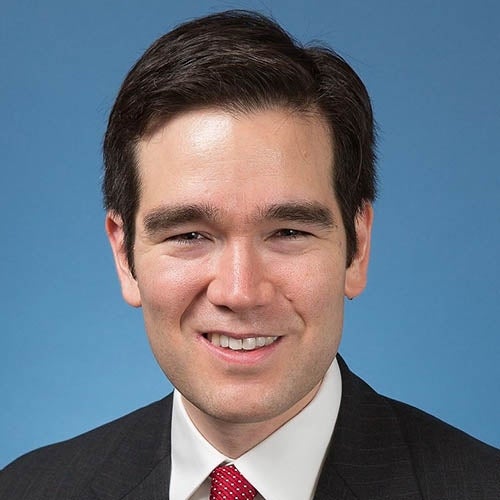UCLA Fielding School-led study finds three factors that raise the odds for Alzheimer's
Research by Dr. Roch Nianogo finds modifiable risks are linked to more than one in three cases of Alzheimer's disease and related dementia in the U.S.

A new analysis led by researchers with the University of California has found the top threats to Americans today regarding dementia in old age are obesity, physical inactivity, and lack of a high school diploma.
Significantly, these risk factors are different from what were found to be the greatest contributors a decade ago, when similar research was published, according to the lead author of the study, Dr. Roch Nianogo, a physician and UCLA Fielding School of Public Health assistant professor of epidemiology.
“About 10 years ago, when we conducted the initial study, we found that the top three modifiable risk factors associated with Alzheimer’s disease and other dementias were physical inactivity, depression and smoking … today, the top three factors are midlife obesity, physical inactivity, and low education,” said Nianogo, who also works at UCLA’s California Center for Population Research. “And our study suggests that these risk factors seem to differ by sex and race and ethnicity.”
The current research – “Risk Factors Associated with Alzheimer Disease and Related Dementias by Sex and Race and Ethnicity in the U.S.” – is pending in a print edition of the peer-reviewed Journal of the American Medical Association’s Neurology, but is currently available on-line. Among the findings:
- Modifiable risks are linked to more than one in three cases of Alzheimer's disease and related dementia in the U.S.;
- while the most important modifiable risk factor was midlife obesity for both men and women, the excess number cases due to all the eight modifiable risk factors was relatively higher among men compared to women; and
- among racial and ethnic subpopulations, the most important modifiable risk factor was midlife obesity in Black and African-American individuals, American Indian and Alaska Native individuals and White individuals; it was low educational attainment in Hispanic individuals, and physical inactivity in Asian individuals.
Overall, the prevalence of all risk factors was lowest among Asian individuals and highest among American Indian and Alaska Native individuals. For instance, the prevalence of smoking was 1959 (29.2%); midlife obesity, 1426 (42.5%); and midlife hypertension, 1836 (47.4%) for American Indian and Alaska Native individuals, the highest of all race and ethnicity subgroups, and 700 (8.0%), 441 (13.2%), and 1006 (25.9%), respectively, for Asian individuals, the lowest of all race and ethnicity subgroups.
There was also some variability in dementia risk factor prevalence by sex. In particular, the prevalence of depression was higher in women (48 301 [23.5%]) than in men (24 011 [13.6%]), while midlife hypertension was more prevalent in men (33 508 [40.9%]) than in women (33 922 [33.4%]).
“There is currently no effective cure for Alzheimer’s Disease and dementia so prevention is very important,” Nianogo said. “Understanding which risk factor plays a role in accelerating cognitive decline can help providers and individuals be pro-active in addressing these risk factors early in their lifetime.”
The research team, made up of scholars from UCLA and the University of California, San Francisco (UCSF), and the U.S. Department of Veterans Affairs healthcare system, also suggested there are ways to mitigate these risks.
“This research is important because it suggests that the growing number of people who are obese in the U.S. could have a major long-term impact on dementia rates,” said Dr. Deborah Barnes, UCSF professor of psychiatry and a co-author. “People may be able to reduce their risk of developing Alzheimer’s and dementia by engaging in a healthy lifestyle. “
Methods: This study used publicly available data that did not include individual identifications. For this cross-sectional study, risk factor prevalence and communality were obtained from the nationally representative U.S. Behavioral Risk Factor Surveillance Survey data from January to December, 2018, and relative risks for each risk factor were extracted from meta-analyses. Data were analyzed from December, 2020 to August, 2021.
Respondents included 378,615 noninstitutionalized adults older than 18 years. The team determined risk factor prevalence for 8 previously found modifiable ADRD risk factors using data from the nationally representative US Behavioral Risk Factor Surveillance System Data (BRFSS). The BRFSS is an annual survey and publicly available data system of health-related telephone surveys that collect state data on US residents regarding their health-related risk behaviors, chronic health conditions, and use of preventive services. These data include information for all 50 states as well as the District of Columbia and three U.S. territories.
Funding: This work was supported by the California Department of Public Health Alzheimer’s Disease Program through the 2019 California Budget Act. The funder had no role in the design and conduct of the study; collection, management, analysis, and interpretation of the data; preparation, review, or approval of the manuscript; and decision to submit the manuscript for publication.
Citation: Nianogo RA, Rosenwohl-Mack A, Yaffe K, Carrasco A, Hoffmann CM, Barnes DE. Risk Factors Associated With Alzheimer Disease and Related Dementias by Sex and Race and Ethnicity in the US. JAMA Neurol. Published online May 09, 2022. doi:10.1001/jamaneurol.2022.0976
The UCLA Fielding School of Public Health, founded in 1961, is dedicated to enhancing the public's health by conducting innovative research, training future leaders and health professionals from diverse backgrounds, translating research into policy and practice, and serving our local communities and the communities of the nation and the world. The school has 761 students from 26 nations engaged in carrying out the vision of building healthy futures in greater Los Angeles, California, the nation and the world.
Faculty Referenced by this Article

Dr. Joseph Davey is an infectious disease epidemiologist with over 20 years' experience leading research on HIV/STI services for women and children.

Robert J. Kim-Farley, MD, MPH, is a Professor-in-Residence with joint appointments in the Departments of Epidemiology and Community Health Sciences

Dr. Anne Rimoin is a Professor of Epidemiology and holds the Gordon–Levin Endowed Chair in Infectious Diseases and Public Health.




















































